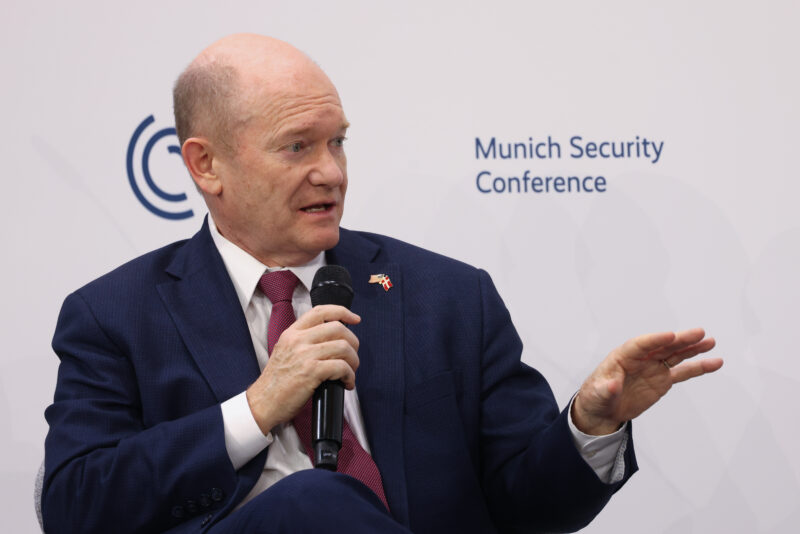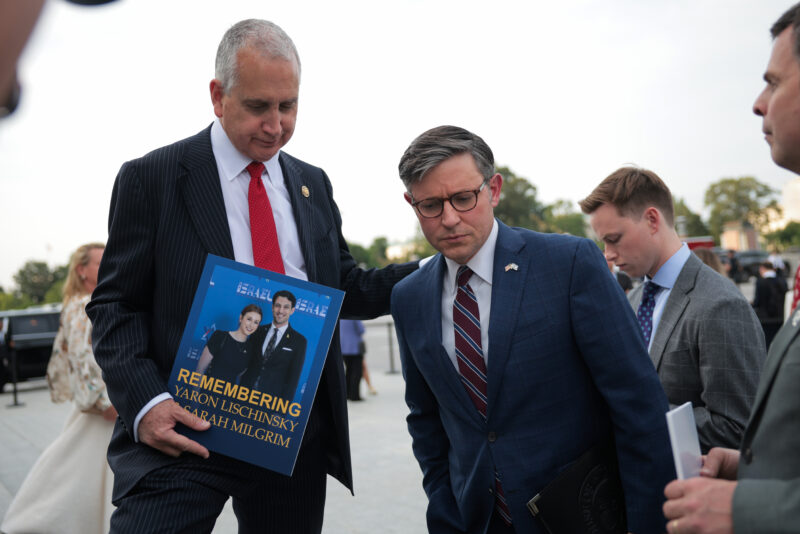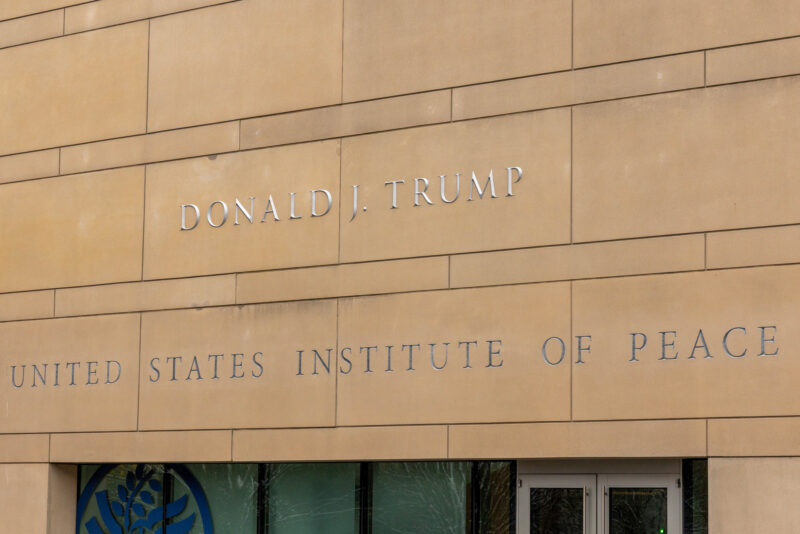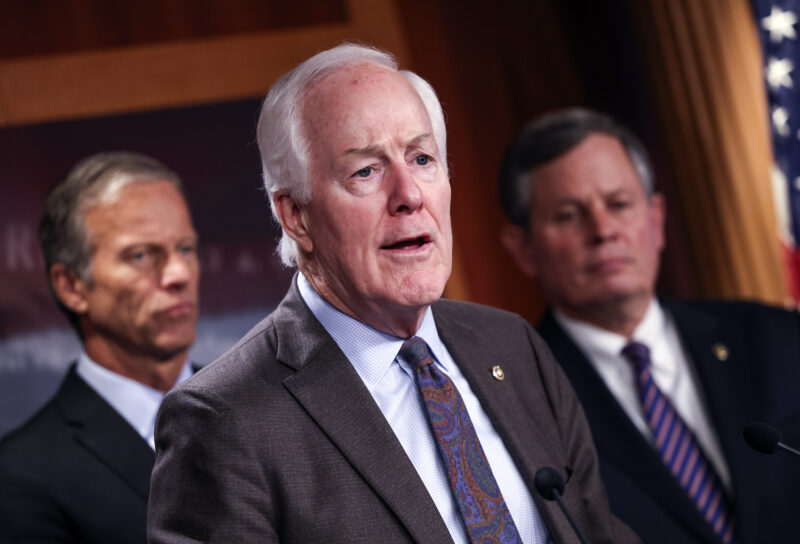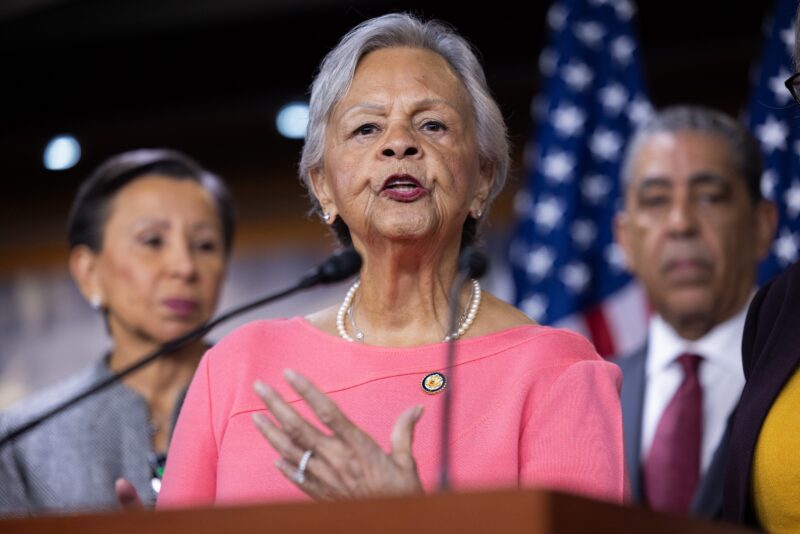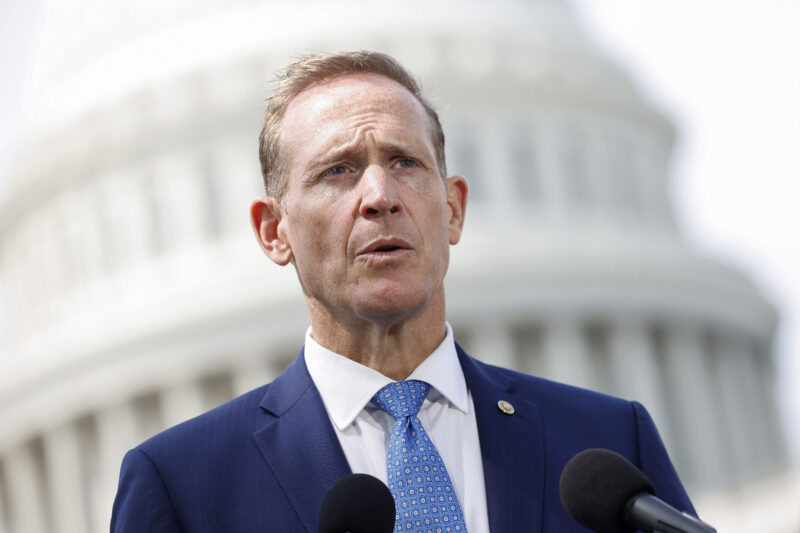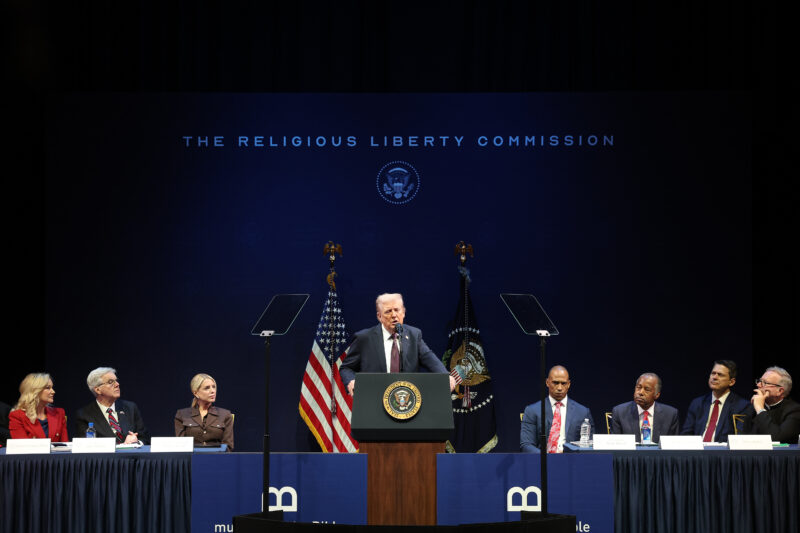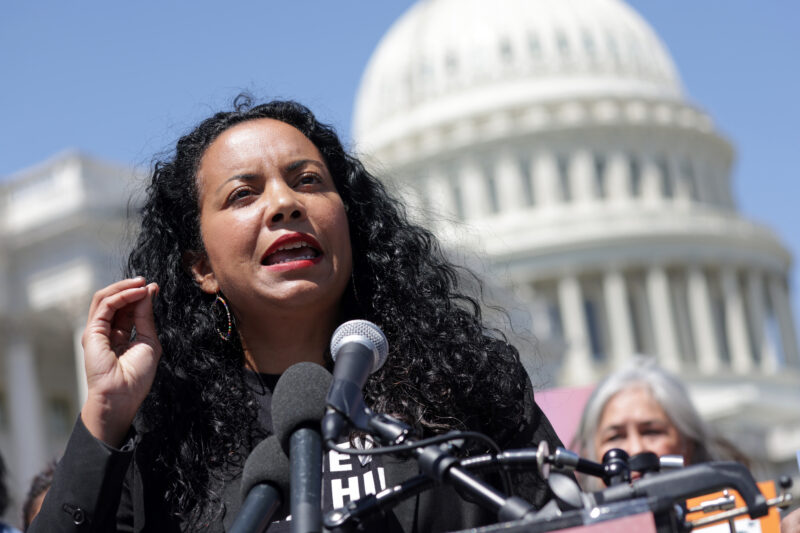House committee releases legislative package aimed at reorganizing, reforming State Department
One provision would allow the department to revoke the passport of anyone the secretary of state deems to be supporting a terrorist organization

Samuel Corum/Getty Images
Rep. Brian Mast (R-FL) speaks during a House Committee on Foreign Affairs hearing on Capitol Hill on January 11, 2024 in Washington, DC.
The House Foreign Affairs Committee on Wednesday released a series of bills aimed at reorganizing and reforming the State Department, ahead of a committee meeting next week where the lawmakers are expected to debate a host of amendments related to foreign policy and national security issues across the globe.
The nine bills released this week are part of a State Department reauthorization effort spearheaded by the committee’s new chairman, Rep. Brian Mast (R-FL), and modeled after the congressional Armed Services Committees’ annual markups of the National Defense Authorization Act, the must-pass annual military and national security policy bill.
While Congress has passed an NDAA annually for decades, it has not conducted such a comprehensive authorization process for the State Department in more than two decades, though it has included State Department authorization bills as amendments in the last several NDAAs.
The Trump administration has undertaken its own efforts to reorganize and cut the size of the State Department.
Among the new provisions in the legislation highlighted by the committee’s leadership is one allowing the State Department to revoke the passport of anyone charged or convicted with providing material support to a terrorist organization, or who is determined by the secretary of state to have done so. Revocations would be subject to an appeal.
The administration could seek to use the provision, if enacted, to limit or prevent foreign travel by those it has deemed to be supporting Hamas and other terrorist groups. The legislation states that the provision cannot be used to “abridge the exercise” of First Amendment rights.
The package would also create an Eastern Mediterranean Security Cooperation Group for members of Congress and administration officials to coordinate with Israel, Greece and Cyprus, which would meet twice a year to discuss joint security issues.
It would extend authorities for the U.S. weapons stockpile in Israel, from which the U.S. can offer weapons to Israel in emergency situations. It would also ban U.S. contributions to the United Nations Commission of Inquiry targeting Israel.
The State Department would also be required annually to report to Congress on other countries’ United Nations voting practices, and particularly on their votes on Israel-related resolutions opposed by the United States.
In outlining the duties of the U.S. ambassador to the U.N., the legislation specifically instructs the ambassador to “identify, report, and hold accountable Member States that engage in malign influence operations and United Nations employees who act inconsistently with the princip[les] of impartiality enshrined in the United Nations Charter” and to oppose the election of states “that engage in malign influence operations” as the leader of U.N. bodies.
The package incorporates legislation aimed at countering detention of Americans by foreign adversaries, establishing a new designation for state sponsors of unlawful and wrongful detention. The administration recently established a similar policy through executive order.
As part of the State Department reorganization, the package would create a new position for an assistant secretary for sanctions policy and a Sanctions Policy Bureau to oversee U.S. sanctions activities and develop strategy and policy around the use of sanctions, as well as coordinate on sanctions with foreign partners.
The legislation would also create a new under secretary for foreign assistance to centralize control of all foreign aid programs — following the shuttering of USAID and its consolidation into the State Department — a director and office of foreign assistance oversight, and a Bureau of Strategic Communications aimed at countering foreign adversary propaganda.
It additionally would largely lift the U.S. arms embargo on Cyprus, provided that any weapons transferred are used by the Cypriot government, that Cyprus continues to reform its financial system and does not allow Russian military vessels to use its ports to refuel — continuing indefinitely a waiver first implemented in 2022.
Mast, in a statement about the package, said he “made a promise to restore command and control [in the State Department] — and this legislation delivers.”
“It ensures every dollar and every diplomat puts America First and is accountable to the president’s foreign policy. It also prevents ideologues masquerading as diplomats from using their posts to push left-wing agendas instead of America’s interests,” Mast continued. “This bill is not just a reform for today, or for President Trump; it is a lasting framework that will strengthen the State Department and benefit every commander-in-chief who follows.”
Please log in if you already have a subscription, or subscribe to access the latest updates.









